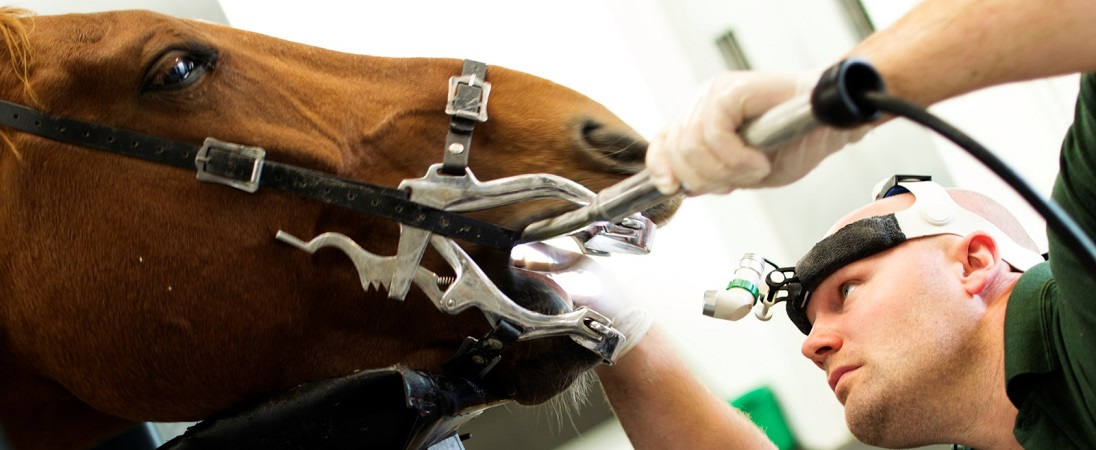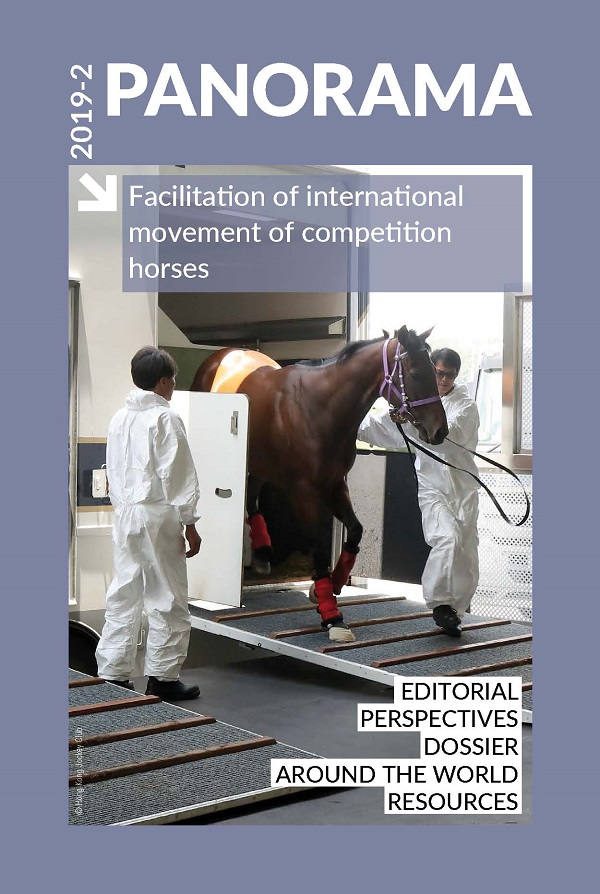Perspectives Posted on 2019-08-08 13:05:07
The role of the veterinary community in ensuring the high health status of competition horses
Keywords
Authors
John McEwen, International Equestrian Federation (FEI), Lausanne, Switzerland.
The designations and denominations employed and the presentation of the material in this article do not imply the expression of any opinion whatsoever on the part of the OIE concerning the legal status of any country, territory, city or area or of its authorities, or concerning the delimitation of its frontiers and boundaries.
The views expressed in this article are solely the responsibility of the author(s). The mention of specific companies or products of manufacturers, whether or not these have been patented, does not imply that these have been endorsed or recommended by the OIE in preference to others of a similar nature that are not mentioned.
This role involves many different aspects and a range of expertise. Nonetheless, the one thing that all these roles have in common is the need to raise awareness among the competition community of the benefits of high health status to protect their horses; animals whose value is, in many cases, incalculable, both financially and emotionally. Regulations and advice, which may seem unimportant and a burden to their competition lives, are in reality crucial to their horse’s well-being and future career.
The role of the veterinary community includes the following tasks:

- to accurately monitor and report disease outbreaks and future challenges through a specific body that collates such information
- to ensure that every form of disease prevention is in place, from simple good hygiene to the use of the most suitable vaccines, in compliance with OIE standards
- to ensure that, during competition, all regulations, especially those concerning animal welfare and biosecurity, are effectively enforced, and that explanations of the value of these regulations are always provided
- to ensure that entry-to-venue inspections and post-entry monitoring are performed with the support of grooms
- to have a planned approach to any suspected disease outbreak at the competition venue
- to continue research to improve diagnostic methods and disease prevention measures.

The veterinary community is continually striving to improve the health status of competition horses and to increase awareness and build capacity in the equine world.
https://doi.org/10.20506/bull.2019.2.2975












